we've found it's best to maintain some flexibility in travelling. never has this rule of thumb been more important to us than when it came time to leave Cusco. Jill had booked us on a bus that would leave around 7am and take something like 12 hours to get to Puno in the southeast of the country, stopping all along the way at sites of interest. we are pretty organized as travelers and we had arranged for the hotel to have a taxi waiting for us at around 6:30 to take us to the bus depot, and all was going according to plan until we arrived at said depot and found... nothing. it turned out to be some guy's house and the taxi driver started honking and yelling to get someone to come out, which the very sleep-addled guy finally did--on the balcony, at least. he was good enough to tell us that the bus wouldn't be departing that day, and that he'd be grateful if we kindly got lost.
Jill speaks good enough Spanish to get us around, but we had to confer with the taxi driver on the details of what was going on; he let us know that there was a strike of various groups of transportation workers, and that they had blocked off all the roads into and out of Cusco and thus that no long distance transit would be occurring that day. clearly the driver had known all about this and why he didn't think--or one of the hotel staff didn't think--to tell us about it when we told them we were getting a long distance bus to Puno is still a little mysterious to me. in the case of the driver, i suppose that decision turned out to have a small financial benefit, because he must have known we'd ask him to take us elsewhere and he would be able to renegotiate his rate with virtually captive passengers. as it turned out, he was actually far less unreasonable than he could of been and tacked on a trip to the airport for only about $1.50.
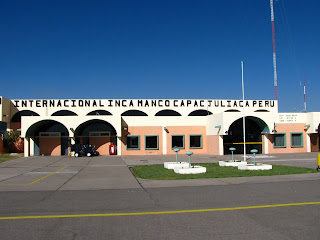
the tiny airport we weren't yet supposed to see, in Juliaca, which is a 45 minute taxi ride up the road from Puno; below, the aeroplane we weren't supposed to take--and almost didn't get to!
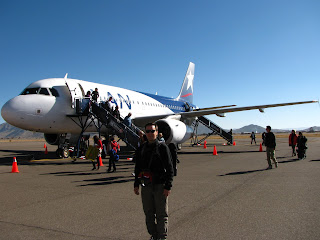
this was the first time either of us had been in the situation where we were just going to show up at the airport and try to book a flight at the counter, and it began to feel like we were reenacting some scene from a predictable movie. we split up and went to the counters of the different airlines to see what they would charge to get us to the nearest airport to Puno, which is in Juliaca. as Cusco is at such high altitude planes have a hard time taking off in the thin air--especially as the air gets warmer and thus thinner as the day goes on--so almost all the flights out of Cusco leave very early in the morning. our movie experience cranked into high gear when we learned that LAN airlines was the only one with a flight still to depart, and that it would be doing so in a matter of minutes. the desk agent let us know that she had precisely four minutes to get us booked and ticketed, and after doing that continued checking her passenger list and ignoring us for what felt like about five minutes. but she did get us booked, and several hundred dollars (plastic to the rescue once more!) and a few minutes later we were up in that very thin air on our way to Juliaca. and then about 25 minutes after that we were on the very high ground of Juliaca.
so it did turn out to be the most expensive flight on a per-mile basis that either of us have ever taken, but well worth it as our whole schedule would have been thrown off by at least a day. at this point it would be well to note a couple of interesting points about the transportation strike in Cusco. this strike and its like are apparently a way of life in Peru, and i'm told across South America in general; we later learned that we had only very narrowly avoided either being stranded in Aguas Calientes or in getting there at all due to a railroad strike that had been going on around the time we were there. we also learned that the transit strike in Cusco was scheduled to end at exactly 7pm on the very day that we were supposed to leave, which i thought was quite civilized, though i was unsure why they weren't simply striking for as long as it took to get what they wanted. perhaps they only wanted to provide us with a unique experience, and if so kudos to them, and many thanks indeed.

covered by the media like a national sport, Puno's version of South America's pastime depicted in still, above, and moving, below, pictures. especially enjoy the guy with the bullhorn--we did:
but after finding a van to take us the several miles from the airport to Puno, we realized we had a whole day with nothing much to do. and then i started feeling a bit raw about not having been able to witness firsthand some of these strike shenanigans--at least that would have had redemptive cultural value, right? as it turned out, i didn't have to fret long. just after checking into our hotel, we were looking for some food on a pedestrian-only street through town, and we got treated to front-row seats for the Puno strike! this one may have been a little less dramatic, without the use of boulders in the street to block traffic, but they were marching instead and they were loud and even ended up burning things in front of the cathedral. the funny thing was that here again they dispersed pretty quickly after the burning was done--oh that, and that they were all health workers and thought that releasing a bunch of thick, black smoke into the air was good for everyone's salud.
though i suppose i shouldn't complain about them getting back to work quickly. health workers are important and after we finally found somewhere to eat and something to do, i found myself thinking i might well need one myself...
Jill speaks good enough Spanish to get us around, but we had to confer with the taxi driver on the details of what was going on; he let us know that there was a strike of various groups of transportation workers, and that they had blocked off all the roads into and out of Cusco and thus that no long distance transit would be occurring that day. clearly the driver had known all about this and why he didn't think--or one of the hotel staff didn't think--to tell us about it when we told them we were getting a long distance bus to Puno is still a little mysterious to me. in the case of the driver, i suppose that decision turned out to have a small financial benefit, because he must have known we'd ask him to take us elsewhere and he would be able to renegotiate his rate with virtually captive passengers. as it turned out, he was actually far less unreasonable than he could of been and tacked on a trip to the airport for only about $1.50.

the tiny airport we weren't yet supposed to see, in Juliaca, which is a 45 minute taxi ride up the road from Puno; below, the aeroplane we weren't supposed to take--and almost didn't get to!

this was the first time either of us had been in the situation where we were just going to show up at the airport and try to book a flight at the counter, and it began to feel like we were reenacting some scene from a predictable movie. we split up and went to the counters of the different airlines to see what they would charge to get us to the nearest airport to Puno, which is in Juliaca. as Cusco is at such high altitude planes have a hard time taking off in the thin air--especially as the air gets warmer and thus thinner as the day goes on--so almost all the flights out of Cusco leave very early in the morning. our movie experience cranked into high gear when we learned that LAN airlines was the only one with a flight still to depart, and that it would be doing so in a matter of minutes. the desk agent let us know that she had precisely four minutes to get us booked and ticketed, and after doing that continued checking her passenger list and ignoring us for what felt like about five minutes. but she did get us booked, and several hundred dollars (plastic to the rescue once more!) and a few minutes later we were up in that very thin air on our way to Juliaca. and then about 25 minutes after that we were on the very high ground of Juliaca.
so it did turn out to be the most expensive flight on a per-mile basis that either of us have ever taken, but well worth it as our whole schedule would have been thrown off by at least a day. at this point it would be well to note a couple of interesting points about the transportation strike in Cusco. this strike and its like are apparently a way of life in Peru, and i'm told across South America in general; we later learned that we had only very narrowly avoided either being stranded in Aguas Calientes or in getting there at all due to a railroad strike that had been going on around the time we were there. we also learned that the transit strike in Cusco was scheduled to end at exactly 7pm on the very day that we were supposed to leave, which i thought was quite civilized, though i was unsure why they weren't simply striking for as long as it took to get what they wanted. perhaps they only wanted to provide us with a unique experience, and if so kudos to them, and many thanks indeed.

covered by the media like a national sport, Puno's version of South America's pastime depicted in still, above, and moving, below, pictures. especially enjoy the guy with the bullhorn--we did:
but after finding a van to take us the several miles from the airport to Puno, we realized we had a whole day with nothing much to do. and then i started feeling a bit raw about not having been able to witness firsthand some of these strike shenanigans--at least that would have had redemptive cultural value, right? as it turned out, i didn't have to fret long. just after checking into our hotel, we were looking for some food on a pedestrian-only street through town, and we got treated to front-row seats for the Puno strike! this one may have been a little less dramatic, without the use of boulders in the street to block traffic, but they were marching instead and they were loud and even ended up burning things in front of the cathedral. the funny thing was that here again they dispersed pretty quickly after the burning was done--oh that, and that they were all health workers and thought that releasing a bunch of thick, black smoke into the air was good for everyone's salud.
though i suppose i shouldn't complain about them getting back to work quickly. health workers are important and after we finally found somewhere to eat and something to do, i found myself thinking i might well need one myself...





































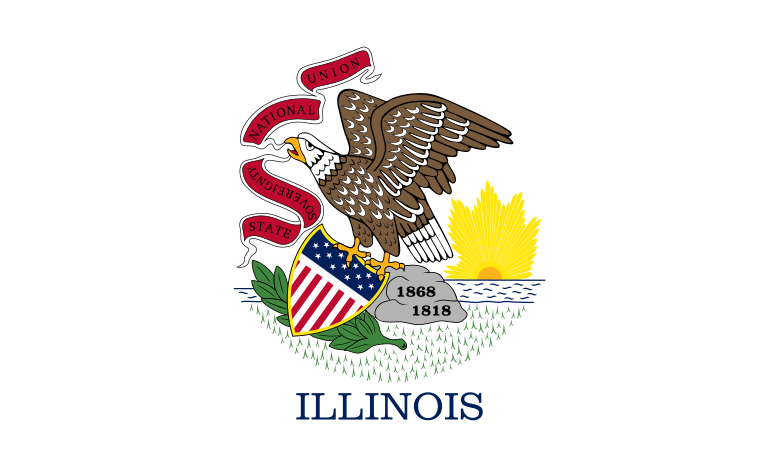




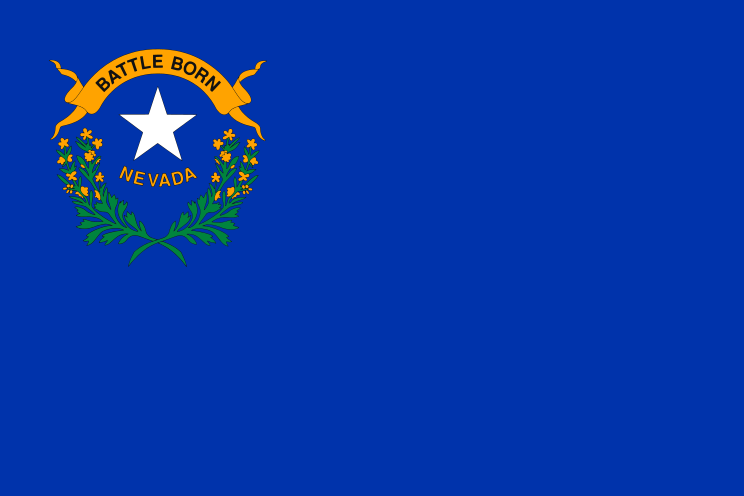




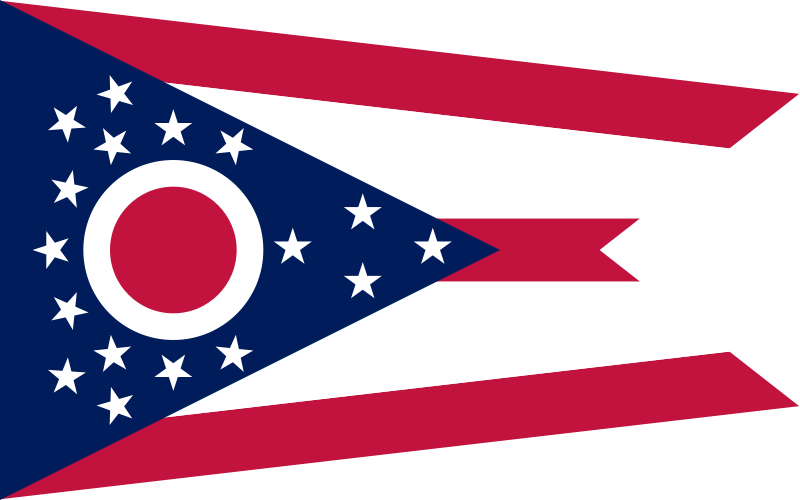

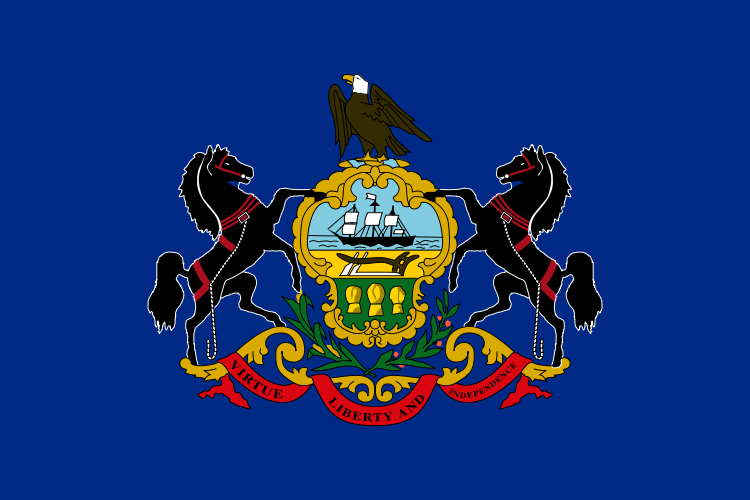





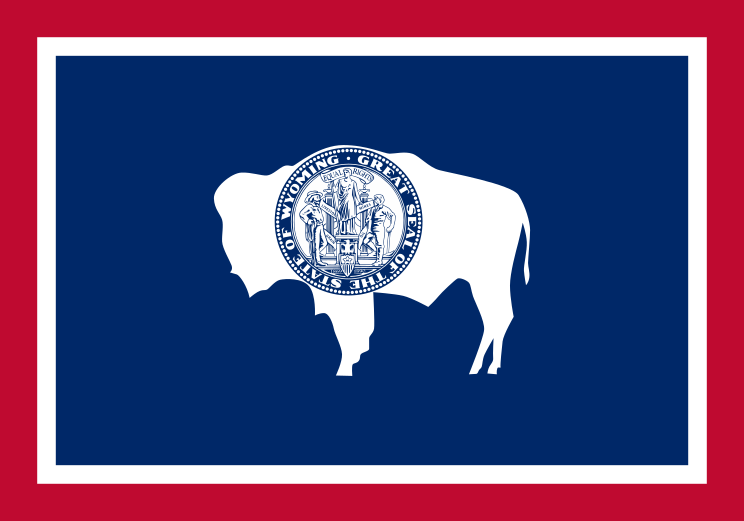
No comments:
Post a Comment